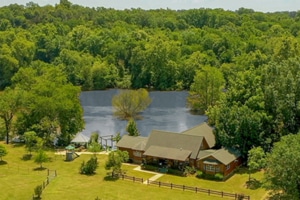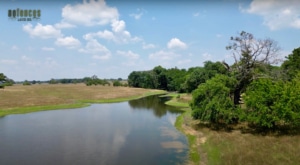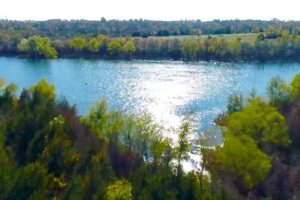Ranch Buying 101 - What You Need to Know
10 Things to Consider When Buying a Ranch
1. Establish a budget.
Make an honest assessment of what your are willing to spend for your dream property. It will play a key role in managing expectations.
Whether you’re buying land for sale in Oklahoma or Texas land for sale, a realistic budget allows you to focus on properties that meet your needs and are within reach.

2. Summarize your plans.
How will you use your new property? Will you new ranch be used for fishing, deer hunting, waterfowling or a weekend family getaway? Perhaps all of these. It’s important to consider specific technical requirements such as game habitat, water or soils. For a family retreat, it needs to “feel” right.

3. Narrow your Geography
Choose an area in which you want to own. Consider the drive time. While many folks won’t drive much more than two hours from home, there are those who are attracted to more favorable pricing often found on properties farther out.

4. Do your homework.
Do your homework (or pay a Buyer’s representative) to educate yourself on the market in the area in which you want to own. Be very thorough.
Decide where you want to own and educate yourself on the market. Be thorough and learn the geography as well as property values and proximity to your primary residence.
Create a list of wants and must-haves and articulate this to your land specialist. Develop questions based on your needs list; this will help you as you tour properties.

5. Build your list of questions.
Use the findings from your homework to establish a list of questions that will provide the information you need to make an informed decision. Write them down. Get answers to every one of them for any place you are seriously interested in. Order them according to priority of importance to you. Change the order if need be. Add questions that you determine need answering and delete questions that provide information that is unimportant. As you educate yourself, your criteria may change with your growing knowledge of the market as well as discovering the things most important to you just by going through the process.

6. Identify your "must have" features
The more you are able to identify and articulate specific “must have” features and criteria, the better off you will be. Also, if you are working with a land-specialist, the better he or she will be able to serve you and present relevant options for your consideration. If you say to a land-specialist “I’ll know it when I see it,” you may be making it very difficult for her to help you find what you are looking for in order to achieve your goals.

7. Find a trusted advisor.
Presume that most salespeople are “product” focused. They will show you only what they know or focus on outcomes that are better for them and their situation, rather than yours. Sadly, many times, it is no different in the land business. Often, brokers only present what they have listed or a buddy has listed. If you feel at any point in the process, that the people who are supposed to be there to help you are not fully focused on you and your needs, then it’s a good idea to re-evaluate your relationship with that person or persons. Essentially you are looking to find a trusted advisor you can rely on to give you the best advice for you, in your situation. You want to find a “customer” focused land-specialist, that puts and keeps your interest ahead of his own, someone who poses questions that are centered around you, your family and your wants and needs as they relate to land ownership.

8. Take notes on showings
After being shown a place, compile and compare data with your previous findings about other places. Don’t try to “see everything” on the market. You will become overwhelmed
with too much information. If you are able to delete potential places before bringing other possibilities into the mix, it may help make the process easier and less confusing. A couple of potential questions to ask might be, “If I had to choose between property A and B which one would it be right now and why?” Also, “If money were not the issue and it was specifically about the natural resources, location, beauty, improvements, etc., which property would I choose and why?”

9. Narrow Down Your List.
Using the information gathered from answers to your list of pertinent questions, weed out the places that simply don’t fit your list of criteria. Be diligent in this. It will pay great dividends in the end.

10. Determine your offer strategy.
Once you’ve found the place you want to own, determine your strategy for buying it. Your desire and motivation for owning the property will largely establish how you approach the process. You may want to make your best offer up front, by minimizing your contingencies, shortening your due diligence period and/or closing time line, thus make it as “clean” an offer as possible, or you may take a different approach, starting out with a low offer and letting the Seller bring you closer to his asking price. This is where a trusted advisor with lots of training and experience can provide a tremendous amount of value. Bottom-line is this…This is your opportunity, your deal, and ultimately your decision. Therefore, don’t ignore your intuition and “gut feel.” Have open and honest dialogue with your trusted advisor so that together you can determine the very best approach for buying a property you love.


